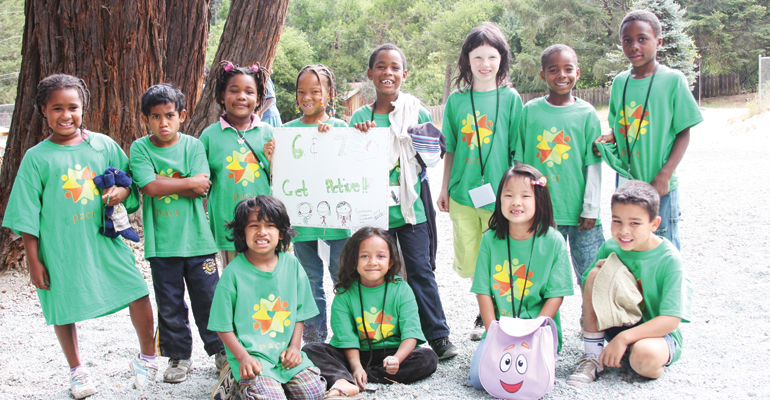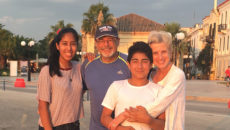Family Fun
Each year at this time, parents ask me, “Can I send my daughter to your heritage camp without me?” I politely respond, “Heck, no!”
A few years ago, one mom told me that her Korean-born son had gone to a kids only culture camp. He loved it, made many friends, and came home proud of being Korean. Then, the mom attended our East Indian Heritage Camp with her Indian-born daughter. Her daughter found new pride in her East Indian heritage — and so did her mom. But she was sad to realize that she knew less about being Korean than about being Indian because she had not shared camp with her son. Siblings have reinforced my conclusion that camps are family affairs; my Korean daughter and Indian son enjoyed each other’s camps as much as their own, and I’ve seen that “aha!” look on biological siblings’ faces countless times.
Heritage camps are about a child’s very being — who he is and where he comes from. Campers learn about their birth culture, develop pride and self-esteem, and come home knowing more about their innermost persons. As a parent, however, I can’t imagine sending my children off to experiences this profound without being there with them.
by Pam Sweetser, executive director of Colorado Heritage Camps and the mother of two children. Learn more about Colorado Heritage Camps at heritagecamps.org.
Focus on Race
Every white parent of a child of color must challenge himself to understand how racism affects his child every day. Parents of transracially adopted children ask: Does my child feel comfortable in her skin? Have I done enough to help her feel proud of who she is? Developing the strength to deal with racism is the work of a lifetime. But families can make headway over the course of a week in the summer.
Eight years ago, we started a camp to explore adoption, race, and parenting in transracial families. Pact Camp offers many typical camp activities — there’s a ropes course, teen community-building activities, and downtime at the pool — but we also discuss race and racism openly and honestly with parents and children. Parents learn strategies to help their child: how to find mentors, ensure that he finds friends of his race, and teach what to do when faced with racism. We tackle tough questions, such as, “Is my child being sent for remedial work at school because of her race? If so, how do I deal with it?” Parents tell us that talking about such issues with staff, other parents, and transracially adopted adults can be a transformative experience.
By Pact Camp staff. Learn more at pactadopt.org.
Calling All Adoptees
As children grow, questions about their country or culture of origin give way to more complex musings, whether voiced or not, about how they fit in — with peers and family — and who they will become. That’s why Holt Adoptee Camp, for kids ages nine through 16, focuses on adoption, race, and identity, rather than birth culture.
Each day, the carefully trained staff, representing a wide range of adoptee experiences, leads group discussions, skits and role-playing, and other adoption lessons. Campers can ask questions, bond with role models, and just hang out with kids who share similar backgrounds.
Marissa Martin is a Korean adoptee who spent many summers at Holt Camp as a camper, counselor, and an assistant director. After her first camp experience, at age 14, she says, “I was so proud to be adopted. Questions like, ‘Why is your last name Martin?’ and ‘Why don’t you speak Korean?’ didn’t bother me any more. Holt Camp helped me get through so much in my life.”
Learn more at holtinternational.org/camp.



